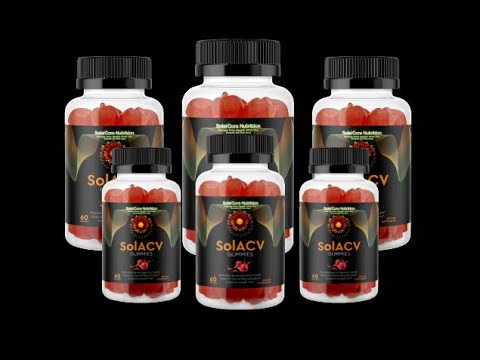Understanding Sugar Alcohols in the Keto Diet
Sugar alcohols have gained significant attention in recent years, particularly among individuals following low-carb and ketogenic diets. These sweeteners provide a way to enjoy sweetness without the high carbohydrate content and caloric load of traditional sugars. For those adhering to strict dietary restrictions like the ketogenic diet, sugar alcohols represent a crucial tool for maintaining a satisfying and enjoyable eating experience. As we delve into the topic of sugar alcohols, it’s essential to understand how they differ from regular sugars and their overall impact on health, specifically in the context of a keto-friendly lifestyle.

At its core, the ketogenic diet emphasizes a very low carbohydrate intake, which forces the body to enter a state of ketosis. In this metabolic state, the body becomes incredibly efficient at burning fat for energy instead of carbohydrates. As traditional sugars can significantly hinder this process by raising blood glucose and insulin levels, many keto enthusiasts seek alternative sweeteners. This is where sugar alcohols come into play. They typically contain fewer calories than sugar and do not cause the same spike in blood sugar levels, making them appealing options for those on keto.
However, not all sugar alcohols are created equal. Each type has unique characteristics that affect its suitability for the keto diet. It’s also crucial to note that while sugar alcohols can help satisfy sweet cravings, they are not entirely free from calories and carbs. Understanding the different types of sugar alcohols, their glycemic index, and how they fit into a low-carb diet can empower individuals to make informed choices that align with their health and lifestyle goals. This article explores five popular sugar alcohols that are considered keto-friendly, offering insights into their benefits and potential drawbacks, as well as how to incorporate them effectively into a ketogenic meal plan.
Erythritol: The Sweetest Choice
Erythritol stands out as one of the most popular sugar alcohols for ketogenic dieters. With a sweetness level of about 70% that of sugar, it offers a satisfactory sweet taste without the typical calorie load associated with sugar. One of the most appealing aspects of erythritol is its negligible glycemic index, meaning that it has minimal impact on blood sugar levels. This makes it an excellent choice for those looking to maintain ketosis while still enjoying sweet flavors in their foods and beverages.
Beyond its sweetness, erythritol has some additional benefits. It is absorbed in the small intestine and excreted unchanged through urine, leading to a lower potential for digestive discomfort compared to other sugar alcohols. As a result, many people tolerate erythritol well, making it a preferred option for baking, cooking, and sweetening drinks. Furthermore, erythritol is less likely to cause laxative effects that can accompany the consumption of other sugar alcohols, allowing for more versatile usage without fear of digestive issues.
Incorporating erythritol into a keto diet can be straightforward. It can be used in various recipes, from keto-friendly desserts like brownies and cakes to beverages like coffee and smoothies. Erythritol also works well as a sugar substitute in sauces and glazes. Its granulated and powdered forms provide versatility, making it a staple in the pantry of any low-carb enthusiast. Notably, while erythritol is considered safe, moderation is always key, as excessive consumption may still lead to gastrointestinal discomfort in some individuals.
Xylitol: The Dental Friendly Sweetener
Xylitol is another sugar alcohol that is often favored in ketogenic diets, especially due to its potential dental health benefits. With a sweetness level comparable to sugar, xylitol has a unique property of inhibiting the growth of harmful bacteria in the mouth, which helps to reduce the risk of cavities. This makes xylitol a popular choice for sugar-free gum and oral care products, making it an appealing sweetener for those concerned about dental hygiene.
However, it’s important to note that xylitol does contain carbohydrates and provides about 2.4 calories per gram. Therefore, while it is keto-friendly, it should still be used in moderation to avoid exceeding daily carbohydrate limits. Unlike erythritol, xylitol is metabolized differently, which means it can elicit a more significant glycemic response. Consequently, individuals who are particularly sensitive to blood sugar spikes may need to be cautious with its intake.
<pXylitol can be used in various recipes, including keto desserts, sauces, and marinades. It can also be substituted directly for sugar in many dishes. Incorporating xylitol into a ketogenic diet can bring added sweetness and potential health benefits; however, it’s crucial to account for its carbohydrate content. Additionally, pet owners should be aware that xylitol is extremely toxic to dogs, and any accidental consumption could result in severe complications.
Maltitol: Sweetness with Caution
Maltitol is a sugar alcohol that is often used in sugar-free products due to its high sweetness level, approximately 75-90% as sweet as sugar. While it offers a satisfying sweet taste, maltitol has a higher glycemic index compared to erythritol and xylitol, meaning it can affect blood sugar levels more significantly. This makes maltitol a less desirable choice for strict keto dieters but can still be enjoyed in moderation by those who are more lenient with their carbohydrate intake.
One of the notable features of maltitol is its ability to mimic the properties of sugar quite closely, making it a popular choice for baking and cooking. Maltitol delivers a pleasant sweetness and can enhance the texture and moisture of baked goods, making it a common ingredient in sugar-free chocolates and candies. However, the trade-off for this versatility is the potential for digestive issues; maltitol is known to cause gas and bloating in some individuals, especially when consumed in larger quantities.
Integrating maltitol into a ketogenic diet requires careful consideration and monitoring. While it can elevate the taste of various recipes, individuals should be mindful of its carbohydrate content and glycemic impact. For those who choose to use maltitol, it’s essential to be aware of personal tolerance levels and adjust recipes accordingly to ensure that it fits within one’s dietary goals. Moderation and awareness are crucial to navigating the inclusion of maltitol in a keto-friendly diet successfully.
Sorbitol: The Occasional Sweetener
Sorbitol is another sugar alcohol that offers a mild sweetness, approximately 60% as sweet as sugar. It is commonly used as a sugar substitute in various low-calorie products and is often found in sugar-free foods and beverages. While sorbitol can be a suitable option for those following a ketogenic diet, it should be consumed with caution due to its potential laxative effects when ingested in larger quantities.
One of the advantages of sorbitol is its ability to provide sweetness without contributing to a high calorie count. It is often used in products aimed at reducing sugar intake while still maintaining flavor. However, sorbitol does contain calories and carbohydrates, and its glycemic index is higher than that of erythritol, meaning it can impact blood sugar levels more significantly. Therefore, individuals on a strict ketogenic diet may need to limit their intake of sorbitol to avoid exceeding carbohydrate limits.
Incorporating sorbitol into a keto diet can be done carefully, particularly in recipes where a sweeter flavor is desired. Sorbitol can be effectively used in baked goods, desserts, and confections to provide sweetness without the full-blown sugar effect. Despite its potential benefits, it’s crucial for individuals to monitor their reactions to sorbitol and adjust their intake as necessary to avoid gastrointestinal discomfort.
Isomalt: The Versatile Alternative
Isomalt is a sugar alcohol derived from beet sugar, known for its unique properties that make it particularly useful in sugar-free confections. Offering about half the sweetness of sugar, isomalt can be a valuable addition to a ketogenic diet that allows for some flex in carbohydrate intake. Unlike some other sugar alcohols, isomalt has a minimal glycemic response, making it a favorable choice for keeping blood sugar levels stable while enjoying sweets.
One of the standout characteristics of isomalt is its ability to withstand high temperatures, which makes it suitable for baking without losing its sweetness. This quality allows for sweeteners and textures that mimics traditional sugar, making it an appealing option for those who enjoy making keto-friendly candies and desserts. Furthermore, because isomalt is lower in calories than regular sugar, it can help those looking to reduce calorie intake while still enjoying treats.
Nevertheless, like all sugar alcohols, moderation is key when consuming isomalt. While it provides versatility in recipes, excessive consumption can lead to gastrointestinal distress, including bloating and gas. It’s essential to incorporate isomalt thoughtfully into a keto diet, monitoring personal tolerance and adjusting portion sizes as necessary to avoid discomfort. Overall, isomalt offers a practical option for those who want to enjoy their favorite sweets without straying from their dietary principles.
Wrapping Up Sugar Alcohols on the Keto Journey
As individuals embark on their keto journey, understanding the role of sugar alcohols becomes imperative. These sweeteners enable the enjoyment of sweet flavors without the carbohydrate burden that traditional sugars impose. However, the key takeaway is that not all sugar alcohols are created equal, and their effects on blood sugar levels and gastrointestinal health can vary significantly between different types. Knowledge of each sugar alcohol’s characteristics allows individuals to make informed decisions that align with their dietary goals.

When integrating sugar alcohols into a ketogenic diet, moderation and personal tolerance should remain at the forefront. While options like erythritol may offer the most keto-friendly choice, others like maltitol or xylitol can be enjoyed within a balanced low-carb lifestyle. It is critical to recognize how these sweeteners impact individual health and adjust consumption accordingly to maintain optimal well-being.
For those new to the keto diet, experimentation with different sugar alcohols can lead to discovering what works best. Incorporating them into meals and treats opens the door to a world of culinary possibilities. Ultimately, the right approach allows individuals to enjoy flavorful foods while adhering to their dietary principles, making the journey not just manageable but enjoyable.

